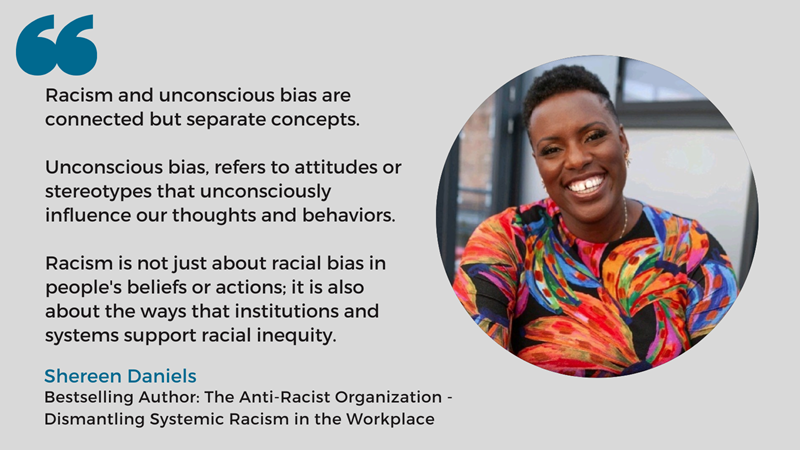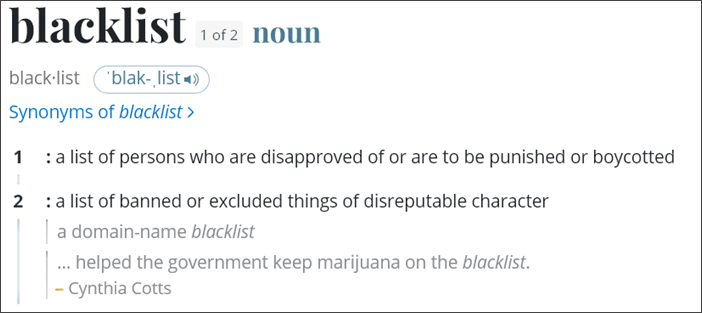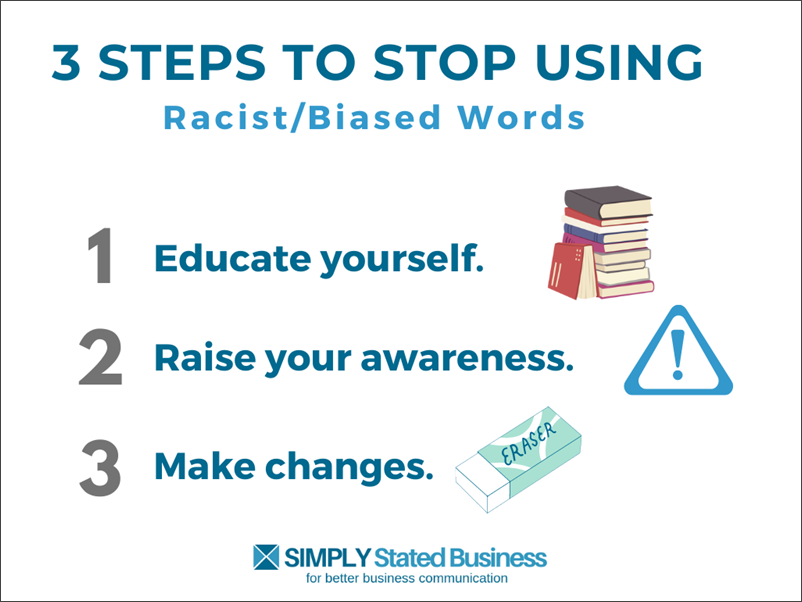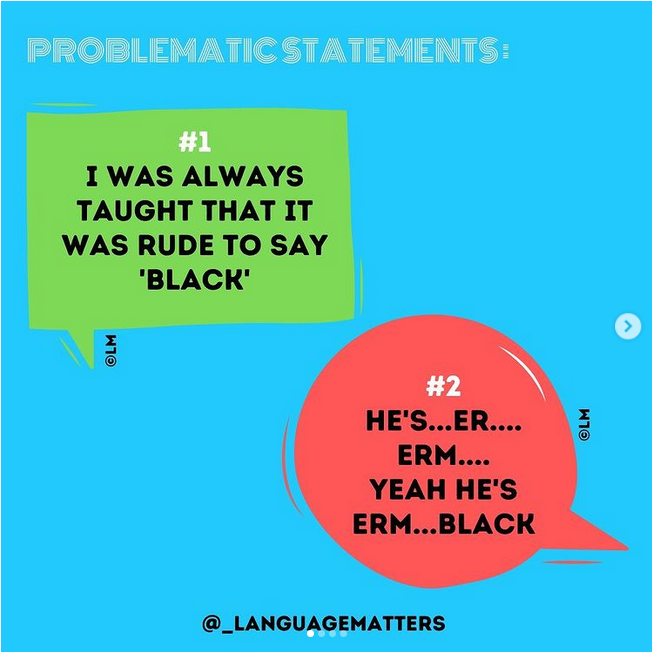
The origins of words and phrases are fascinating. At least to this word nerd. But what if the word or phrase you use is rooted in racist or biased meaning?
Would it change your mind about using that phrase?
We all use throwaway, everyday phrases to make a point or express ourselves. The number with racist or biased beginnings is mind-boggling.
Many of us are unaware of the original meanings; otherwise, we would not use them (I hope). Let’s look at a few examples.
Everyday Use of Racist/Biased Words and Phrases
Before we start, consider what is meant by racist versus biased. The following is a quote from a LinkedIn post by Shereen Daniels.

- When I first created the title to this post, I used only the word biased.
- I realized it’s because the word, racist, is uncomfortable.
- Biased feels gentler, except to the individual on the receiving end.
But when you read the original meaning behind the examples given below, it becomes clear that the term racist is far more accurate.
The biggest challenge to the use of these words is how common they are. The phrases sneaked into our everyday language so long ago, we barely noticed.
The following are among the most common. Several shocked me when I learned the origin. See if you feel the same.
Black (meaning something negative or undesired)
The word black inspired this post. For the last couple of years, I have been updating posts and converting prior SlideShare presentations into video.
In a prior post, I converted the SlideShare deck into a video. I made a few edits. When reviewing the post and video, a phrase suddenly jumped out – black sheep of the family.
How had I missed this? I already completed multiple edit reviews, yet that missed detection.
The black sheep meaning evolved from an unwelcome addition to a flock because its black wool could not be dyed. Today, it denotes an individual with undesirable characteristics.
While some argue the phrase has nothing to do with a specific race, using black as synonymous with bad feeds into racial bias. So, I changed the phrase in the updated video.
The funny thing is, I remember as a child wondering why that had a bad connotation. I thought black sheep were prettier than white. Yet, I still used the phrase (many) years later. See how those phrases sneak in?
Another example of the use of the word black to represent something bad is the word blacklist. Our friends at Merriam-Webster define the word as shown below.

Phrases from History
The meaning of several words and phrases emerged from the slavery era and ethnic slurs.
- Peanut gallery were cheap theater seats, which were the only purchase option available to African Americans.
- Long time no see surprised me. Its origin is rooted in mockery of Native Americans and Chinese and how they spoke English.
UPDATE: Thanks to the comment from Don Woodman who advised the word picnic does not have its origins in the lynching of Black Americans. A fact check from Reuters (and other sources) noted,
“The word picnic does not originate from these brutal killings, but there is sufficient evidence to corroborate that these often occurred in gatherings that could be referred to as picnics.”
Fact check: The word picnic does not originate from racist lynchings, July 13, 2020
By Reuters Staff
My apologies to my readers for not doing better research. As a writer, I know better.
Three Steps to Stopping the Use of Racist/Biased Words
Is there a term or phrase that has you grinding your teeth? It could be as simple as a hated nickname someone tagged you with long ago.
Some individuals may say you’re oversensitive. Too bad. You have a right to your feelings. So, before you dismiss certain words or acts as too “woke,” remember how you feel when called by that hated nickname. Racist/biased words are so much worse.
By the way, did you know the term woke is based in African American history? I didn’t. One of my favorite educators, Sharon Hurley Hall, enlightened me (as she so often does). Read her “letter” regarding the word’s origin.
The following illustrates 3 Steps to Stop Using Racist/Biased Words.

1. Educate yourself.
I’ve sung Sharon’s praises here many times. As an anti-racism advocate and co-founder of Mission Equality, Sharon offers so many avenues for education you could find almost any related topic you are looking for.
A source Sharon referred me to is anti-racism advocate, Sadia Siddiqui. Sadia’s Instagram account, Language Matters, offers inclusive language education and training.
I am not on Instagram, but I was able to get a flavor of the real value Sadia delivers through postings, such as the example shown below. Important discussions (from multiple points of view) incorporate each post.

Another source I discovered was an RWJ Barnabas Health article, Say This Not That. I appreciated the suggested alternatives to the phrases used in the examples.
2. Raise your awareness.
Because these words have become so common as to lose their original meaning, it is easy to zoom right past them. Like I did with the video.
Education helps raise your awareness. See, Sharon, it is working. Baby steps but there’s hope. 😊
- Reading aloud helps. The phrase is more likely to be heard.
- And keep on educating yourself.
- Repetition reinforces awareness.
3. Make changes.
This last step takes two forms.
- Physical changes – editing content, using alternative language.
- Behavioral changes – retraining yourself regarding the use of the words and phrases.

As a writer, I understand the power of words. We use them to persuade, influence, and connect. Why would we use them to hurt? My ignorance is no excuse.
What phrases surprised you with their racist or biased roots? What have you done to stop using that kind of phrase? Share your thoughts in Comments.
Credit: Bigstock Photo
Credit: Canva
==================================
Helping you keep your business communication simple, clear, and uniquely yours.
==================================

The etymology of picnic given in the article is just made up.
There’s enough real examples of racism in the world that we don’t need to fabricate any.
Thank you for your input. I will do further research and change any inaccuracies. If you have sources, feel free to share. Sadly, it’s true that we have many examples to choose from.